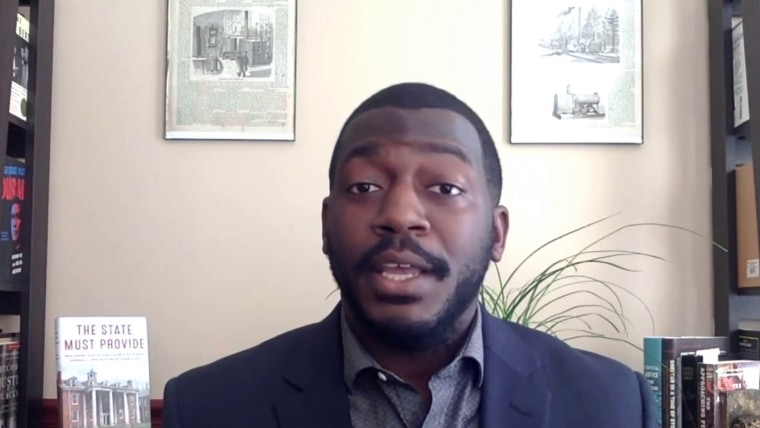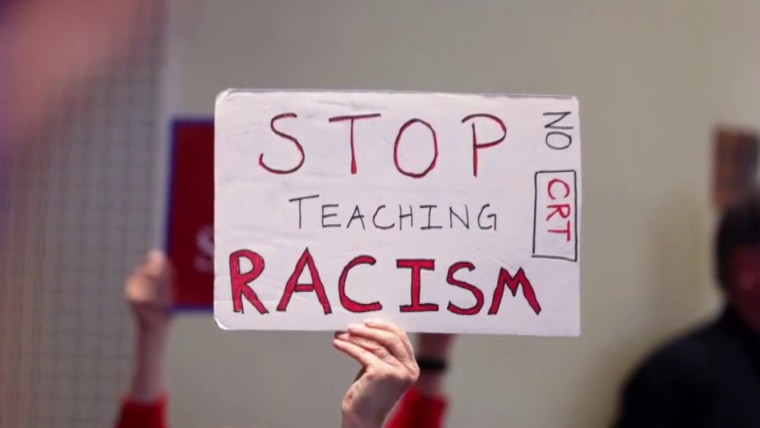Critical race theory panic is largely about white parents holding on to mythologies
“
Classrooms are more diverse, and students need to have the tools to coexist with one another.

A September report from NBC News looked at 33 cities and counties where white parents have fought their school systems to address racial equality or other topics that have been mislabeled as critical race theory and found that over the last 25 years, those school systems have become less and less white.
Classrooms are more diverse, and students need to have the tools to coexist with one another.
That suggests that conversations related to racism or other kinds of oppression aren’t being kicked off by teachers just because. Rather, those teachers are responding to the realities that the students in their classrooms are facing. Classrooms are more diverse, and students need to have the tools to coexist with one another.
As the world changes, it’s normal for parents to be concerned with how exactly these changes are being communicated to their own kids. Issues that include racism and how much it factored into the founding of our country and how much it factors into today’s society, issues that include LGBTQ people and their rights. After school shootings, even discussions about guns and where people should or shouldn’t be able to carry them can be explosive.
Many parents are probably not well equipped to fully upack these topics with their child or teenager, and they worry about how a teacher might approach these issues. I remember coming home having learned something at school about sexuality, or even racism, and asking a parent about it only to see them panic on how to answer appropriately.
In what may have been a pivotal moment in the Virginia governor's race, Democrat Terry McAuliffe, while responding to a debate question about the role parents should have in what books their kids are exposed to in class, said, “I don’t think parents should be telling schools what they should teach.”
Republican Glenn Youngkin, who had been trailing McAuliffe in the polls, proposed the exact opposite. He said parents should be able to make major decisions related to their children's education, and he promised to ban critical race theory (which is taught in graduate school, not in K-12) from schools. In addition to that promise, he promised higher teacher salaries and more charter schools (with no substantive plan on how he’d do this).
It really shouldn’t surprise that before the election, Youngkin, the eventual winner, enjoyed a 15-point lead with K-12 parents, according to other polls. Parents — whether they’re Democrats or Republicans — are burned out, and the last thing they want to hear is that they shouldn’t have agency in their kids' lives.
For parents who grew up rhyming “In fourteen hundred ninety-two, Columbus sailed the ocean blue,” having their children learn that he brought genocide along on that trip probably isn’t comfortable. Since Donald Trump was president, Republicans have increasingly expressed concerns that children in public schools are being radicalized through lessons that named white supremacy as a thing and called out racism in general.
Tennessee and Iowa are among the states that have passed sweeping measures to ban any lessons that go against traditional teachings of American history (i.e., the laws seek to prohibit versions of histories that don’t promote white Americans as saviors). It shouldn’t at all be a surprise that such laws followed a movement that helped bring down statues of white men who were racist (even if certain people don’t want to acknowledge the truth that they were racist).
This is an issue that really does divide America. Around 80 percent of Democrats support having their children be taught history in a way that discusses racism and structural inequities. According to a recent USA Today poll, only 40 percent of Republicans do.
This is an issue that really does divide America.
Even so, McAuliffe’s phrasing, that parents shouldn’t be telling schools what to teach, is not the best way to communicate the message that accurate and more complete histories be taught.
Youngkin and other Republicans understand that parents do want to have the power to control what their kids know about the world around them. But what some of those parents ignore is that they can’t stop the truth forever.
They also ignore that they’re not the only parents who matter. As the NBC News report notes, the schools are becoming less and less white. It follows that the parents of students are, too.
More from MSNBC Daily
Must reads from Today's list
Our country is at a critical new juncture where we are trying to finally face the realities created by systems that are foundational to this country and how they do harm. From the Black Lives Matter protests to the #MeToo movement, we are making meaningful strides to recognize the lived experiences of everyone around us — experiences that would exist whether we named them or not.
Some Democrats are likely looking at the fallout in Virginia as evidence that they should reverse course on pushing for more thoughtful conversations about race and equality. It’s something I am even hearing from friends. But that is the wrong approach.
There’s a way to argue the need for young people to be taught the truth without communicating that you’re not taking parents’ concerns seriously. And there’s a way to communicate that parents of all backgrounds ought to be heard.
Even more importantly, the children who are making our school systems more diverse (and their white counterparts) are owed an education that explains the world around them as it actually exist and lets go of the mythologies that used to pass as American history.“


No comments:
Post a Comment